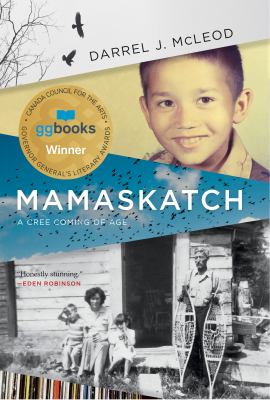 Title Details
Title Details
Title
Mamaskatch : a Cree coming of age
Call No
IND Bio M165m
Authors
Subjects
McLeod, Darrel J
McLeod, Darrel J.--Family
Cree--Biography.
Indigenous men--Canada--Biography.
Indigenous Collection.
Authors, Canadian.
Autobiographies.
Autobiographies.
Biography.
McLeod, Darrel J.--Family
Cree--Biography.
Indigenous men--Canada--Biography.
Indigenous Collection.
Authors, Canadian.
Autobiographies.
Autobiographies.
Biography.
Language
English
Published
Madeira Park, BC : Douglas and McIntyre, 2018.
Publication Desc
288 p. : illustrations ;
ISBN
9781771622004
hardcover
Target Audience
Unknown or not specified
Dimensions
24 cm.

Book
|
Mamaskatch : a Cree coming of age
Copies
1 Total copies, 1 Copies are in,
0 Copies are out.









